Discover tasty recipes...
Food is more than just something to satisfy hunger. Discover easy appetizer recipes, various tasty salads and dressings, find recipes for dips, sauces, preserves and learn more. Cooking is creative and should be treated as an art as well as a science.
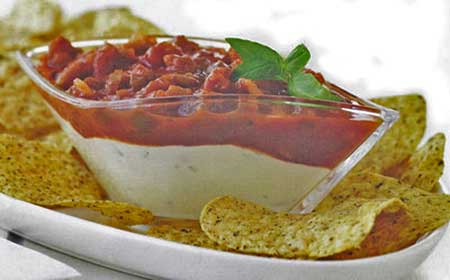
Discover easy appetizer recipes for parties, holiday celebrations, or any other time you need them. Appetizers or startes are typically smaller than a main dish and may be served at the dinner table as a part of the meal, or before seating. Sometimes appetizers are also served between courses. Some starters are served cold, others hot, but they are often designed to be eaten by hand or with minimal use of cutlery. More about appetizers...
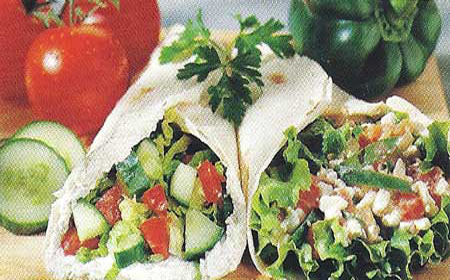
One of the biggest advantages of salads is their variety. The ingredients from which they can be made are not only large in number, they are practically unlimited. In fact, almost any cooked or raw fruit or vegetable, or any meat, fowl, or fish, whether cooked particularly for this purpose or left over from a previous meal, may be utilized in the making of salads. Canned foods of these varieties may also be used for salads all year around, or during... More about salads...
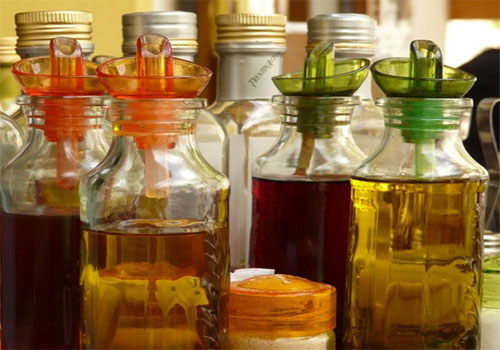
Various tasty salad dressings may be made at home to serve with your salads. The kind of dressing to select depends both on the variety of salad served and on the personal preference of those to whom it is served. Some of these contain only a few ingredients and are comparatively simple to make, while others are complex and involve considerable work in their making. Whether simple or elaborate, however, the salad dressing should be carefully chosen, so that it will blend well with the ingredients of the salad with which it is used. More about dressings...
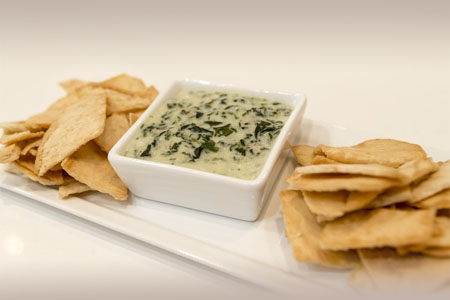
Dip is a thick sauce simmilar to dressing in which pieces of food are quickly or briefly dunked before eating. The perfect dip may be described as one which enhances both the appearance and the flavor of the food for which it was intended. Both seasoning and flavoring are largely a matter of taste, so when you begin mixing add only a part of the flavoring and seasoning ingredients and taste as you proceed. In calculating the amount of dip you require, count 1 to 2 tablespoons as the equivalent for 1 portion. Find recipes for dips...
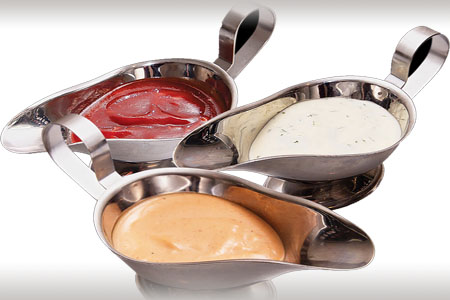
There is almost no limit to the number of cooked or uncooked ingredients which can be mixed together to create delicious sauce. So try to learn basic methods of preparing best known classic sauces first, than try other variations. Once you have learned to create some basic and classic sauces, you will be able to experiment and use your imagination to develop other variations of your own sauces. Always keep in mind that sauce should make a real contribution to the dish for which is designed. Good sauce should also possess its own well-defined and special flavor.
More about sauces...
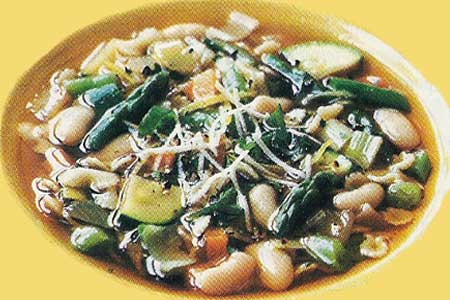
The basis of all good soups is the stock or liquid in which bones, cooked or uncooked meat or vegetables have been boiled. The proportions for soup stock are generally one pound meat and bone to four cups of water. The meat should be cut into small pieces and put into kettle with bones, covered with cold water and cooked slowly for four to five hours. Gravies and browned pieces of meat are often added to the soup kettle for color and flavoring. The stock should be strained, quickly cooled and all fat removed. More about soups...
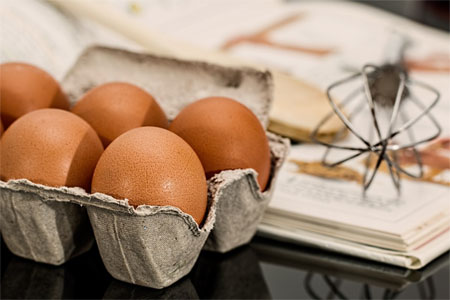
Food is more than just something to satisfy hunger. Food is important to our physical well-being, for energy, growth, repair, and regulation of our body and its functions. Food is also important to the well-being of our spirit. Good food can appeal to all five of our senses and the sharing of food nourishes our spiritual sense of community. When food is shared in the company of those who care about us, we experience a sense of value and well-being that is rarely found elsewhere. Food also has its own perfume which is an invitation to taste and enjoyment. Learn more...
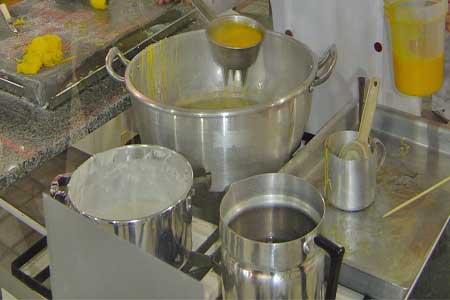
Cooking is creative and should be treated as an art as well as a science. Taste and touch are enhanced by contrasts, so try to be imaginative cook and make sure to learn all cooking techniques needed so you know the best methods for food preparation. Don't forget that fundamentals of good cooking include knowing how to shop for food, learning what to mix with what as well as how to prepare it. When you understand and learn basics of cooking, you will experience true joy and real satisfaction in cooking. Learn more...
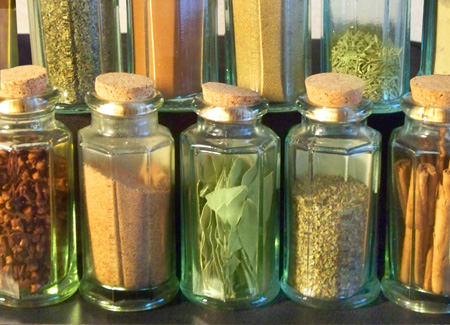
Spices are secret "friends" of every serious cook. Herbs and spices are used since ancient times to flavor foods, as well as the basis for producing perfumes, cosmetics and medicines. They were once thought to possess magical properties and were often used as the symbols of supernatural powers. Every good cook needs a working knowledge of herbs and spices for seasoning and flavoring of dishes. Do not be heavy-handed with herbs and spices, because most foods have a distinct flavor of their own which should not be overpowered or destroyed. Keep in mind that you want to enhance the flavor of a dish you are making, not to overpower it. More about herbs and spices...
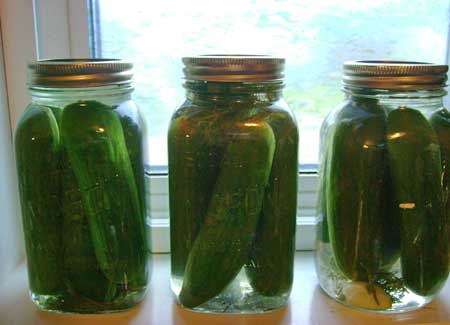
The most important golden rules for preserving are: gain knowledge about variety of produce and their respective season, always buy the best ingredients you can afford, and always use proper preserving techniques to avoid the high risk of illness or death associated with improper preserving techniques. When preserving bring the food to a high enough temperature for a long enough time that spoilage and disease-producing microorganisms are killed, while not heating the food so much that it loses nutritive value or palatability. More about preserves...